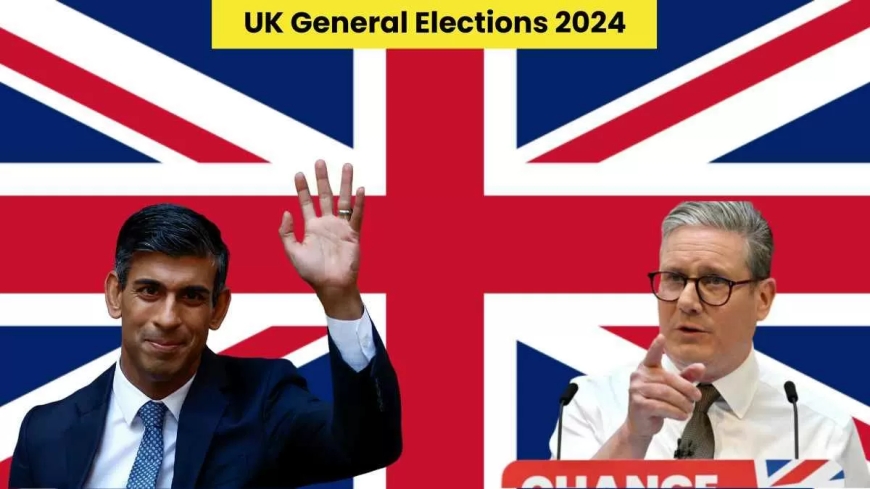UK Elections: A Guide to Key Terms and Concepts

As the United Kingdom prepares for its first national election in nearly five years, scheduled for Thursday, the political landscape is charged with anticipation and speculation. Opinion polls suggest a challenging scenario for Prime Minister Rishi Sunak's Conservative Party, which has been in power for 14 years. Despite winning three successive elections, the Conservatives face criticism for economic sluggishness, declining public services, and various scandals. In stark contrast, the Labour Party, led by Sir Keir Starmer, is focusing its campaign on the promise of "Change," gaining significant traction in the polls.
Understanding the unique vocabulary of UK elections is essential for navigating the upcoming political contest. Here’s a breakdown of some key terms and phrases:
Battle Bus:
Campaign vehicles used by political parties to transport politicians and journalists around the country. Labour's red bus highlights "change," the Conservatives' blue bus promises "a clear plan, bold action, secure future," and the Liberal Democrats' yellow bus features leader Ed Davey engaging in various activities to capture public attention.
Blue Wall:
Refers to affluent constituencies in southern England traditionally supporting the Conservative Party. With the Conservatives currently trailing, the Liberal Democrats aim to capture these socially liberal seats.
Brexit:
The UK's departure from the European Union, initiated by the 2016 referendum and completed in 2020. Though a significant event, it has been notably absent from current campaign discussions, with both major parties avoiding the topic.
Coalition Government:
A government formed by multiple parties sharing ministerial positions. The 2010-2015 Conservative-Liberal Democrat coalition was the first since World War II.
First Past the Post:
An electoral system where the candidate with the most votes in each district wins. This system benefits the two main parties, Conservatives and Labour, often leading to a majority of seats in Parliament without a majority of the popular vote.
House of Commons:
The elected lower house of Parliament with 650 seats. The leader of the party with a majority becomes prime minister.
House of Lords:
The unelected upper house of Parliament, which reviews legislation. It includes life peers, bishops, and hereditary nobles. The House of Lords is often criticized for its undemocratic nature, but reform has proven difficult.
Hung Parliament:
Occurs when no single party has a majority of seats. Parties must negotiate to form a working majority. With Labour holding a significant lead in polls, a hung parliament is unlikely.
King’s Speech:
An annual speech by the monarch outlining the government's legislative program. This year's speech, scheduled for July 17, will be delivered by King Charles III.
Majority/Minority Government:
A majority government is formed by a party with over half the seats in the House of Commons. A minority government lacks a majority and relies on support from other parties, often leading to instability.
Marginal Seat:
Constituencies with close election results, making them highly competitive. Opposite of a safe seat.
Red Wall:
A group of constituencies in the Midlands and north of England, historically Labour strongholds. Many switched to the Conservatives under Boris Johnson, but Labour aims to reclaim these seats.
Supermajority:
A term borrowed from American politics, suggesting Labour could gain overwhelming power if it wins too many seats.
Swingometer:
A BBC election night graphic showing voter shifts between parties. Initially a physical prop, it is now digitally represented.
Tactical Voting:
Voters supporting a party they don't usually back to prevent another candidate's victory. This election might see increased tactical voting to unseat Conservatives.
Election Context and Coverage
The upcoming election is pivotal for the UK, reflecting public sentiment on economic performance, public services, and political integrity. With Labour campaigning on change and the Conservatives defending their record, the political stakes are high.
For more detailed coverage on the UK elections and other global political events, keep track of the latest updates from reliable news sources.













































